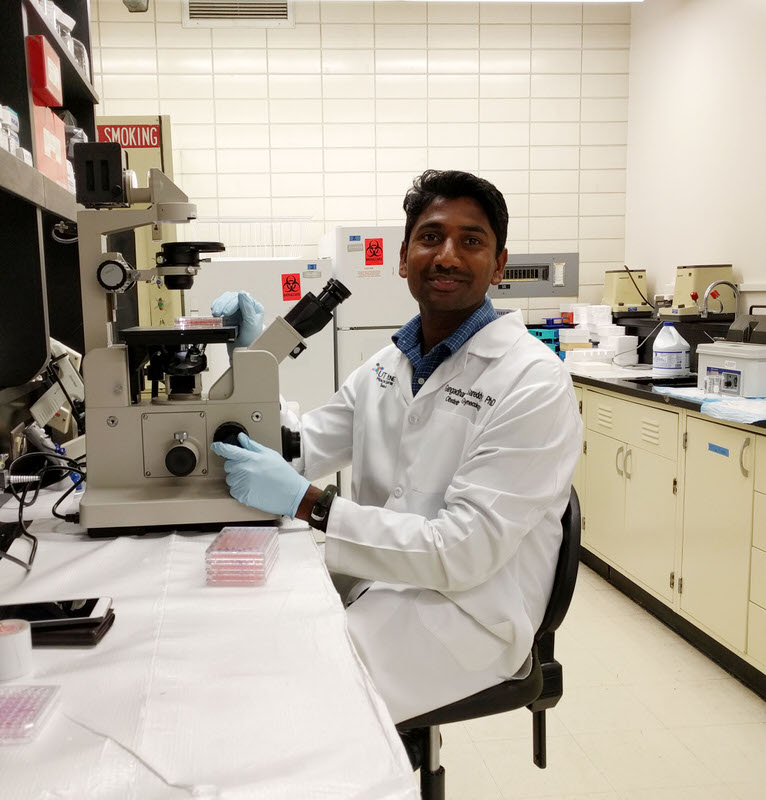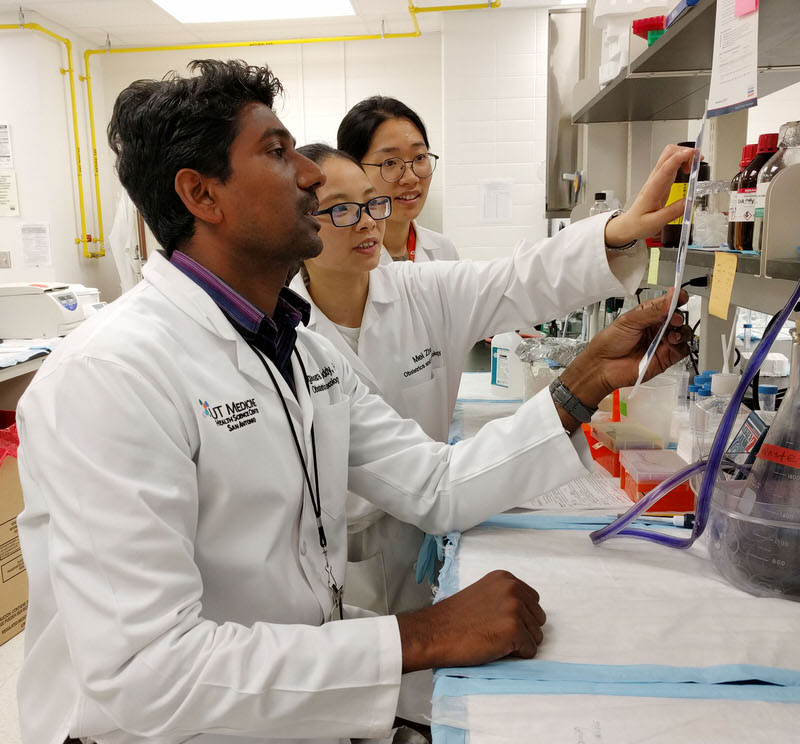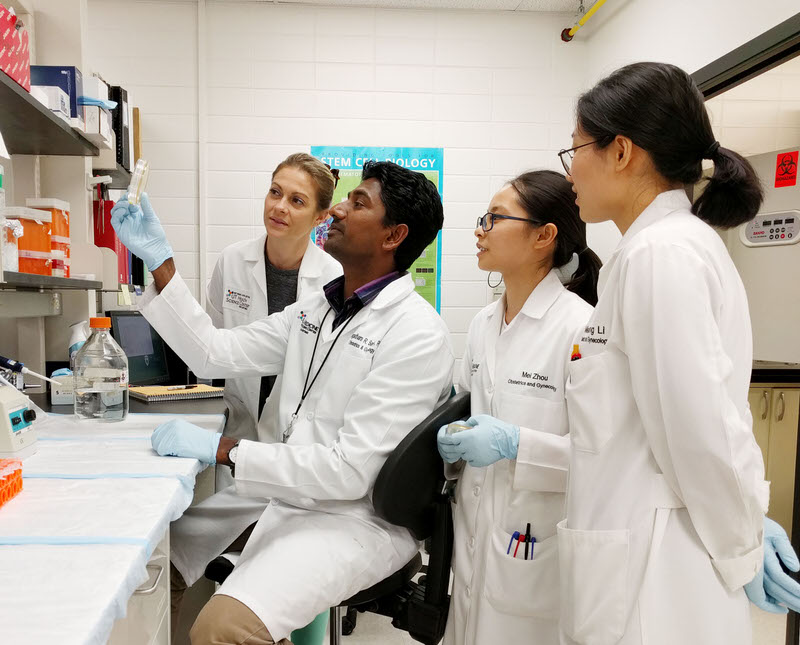Faculty Spotlight: 9 Questions with Dr. Gangadhara Reddy Sareddy

1) Please tell me about yourself.
Please tell me about yourself.
I am an Assistant Professor in the Department of Obstetrics & Gynecology (OB/GYN). I received my Bachelor’s and Master’s degree in Biochemistry and Doctoral degree in Cancer Biology from the University of Hyderabad (India). I completed my postdoctoral training at UT Health San Antonio in 2015 where I was able to pursue my research interest in hormonal signaling in brain disorders and gynecologic cancers. Shortly after, I was promoted to Assistant Professor where I continue to pursue my research interest.
2) What brought you to UT Health San Antonio?
When researching different options for my postdoctoral work I had a number of opportunities available to me. However, the brain has always been of particular interest to me due to its complexity and ability to perform such a wide variety of functions. Dr. Vadlamudi’s lab utilizes a multidisciplinary approach to his research projects that focused on the studying the role of hormones in brain disorders and cancer which matched with my research interest. These are the two subject matters that I have wanted to pursue as a researcher and scientist.
3) Tell me about your research interests and why you are passionate about this topic?
As I mentioned, the brain and gynecological cancers have always been of particular interest to me. My studies are focused on hormonal signaling and epigenetic mechanisms in glioblastoma and gynecologic malignancies. I research two types of cancers that tend to have devastating effects on patients; my goal as a researcher is to try and find a solution to this problem. The survival of patients with these tumors is dismal and I am passionate to understand the biological factors that contribute to tumor aggressiveness and resistance to therapies which may lead to novel therapeutic interventions.
 4) What do you want the public to know about your research? Why is your topic important?
4) What do you want the public to know about your research? Why is your topic important?
Glioblastoma are the deadliest tumors of the brain with half of the newly diagnosed patients dying within a year. Existing treatment with radiation and chemotherapy are not effective in extending patient survival. Ovarian cancer is the leading cause of death from gynecologic malignancies. Initial success with chemotherapy is often short-lived as the majority of patients relapse with an incurable disease. Development of therapy resistance is the main factor for poor survival in glioblastoma and ovarian cancer patients. Our research primarily focuses on elucidating the epigenetic mechanisms that derail the tumor suppressor mechanisms, and we are aimed to find out novel therapeutic combinations using preclinical models.
5) What is your favorite part of your job?
I really like to work on the bench, being able to see the science develop from the initial experiment, applying these hypotheses to the bench with the intention of moving it to the bedside has always been one of my favorite parts of the job. It also has to be said that its always interesting and exciting to get see the experimental results. I try to relay this excitement and interest to my students, as I know how important mentors are in both their and my career.
6) What is the most challenging part of your  job?
job?
Unfortunately, being a scientist doesn’t mean I get to be in the lab all day every day. I do have to write grants, which is always challenging.
7) What do you like most about mentoring students?
It’s a great opportunity to help mold and watch bright and successful scientists flourish. Mentors are often key to developing not only future scientists but each individual. I am glad that I can play a role in student development.
8) How do you like to spend your free time?
I love to play sports. This makes me competitive and fresh, which is an attribute that is valuable in the scientific world.
9) What is the most helpful advice you’ve received?
Do not get distracted by peripheral issues and just believe in yourself.
